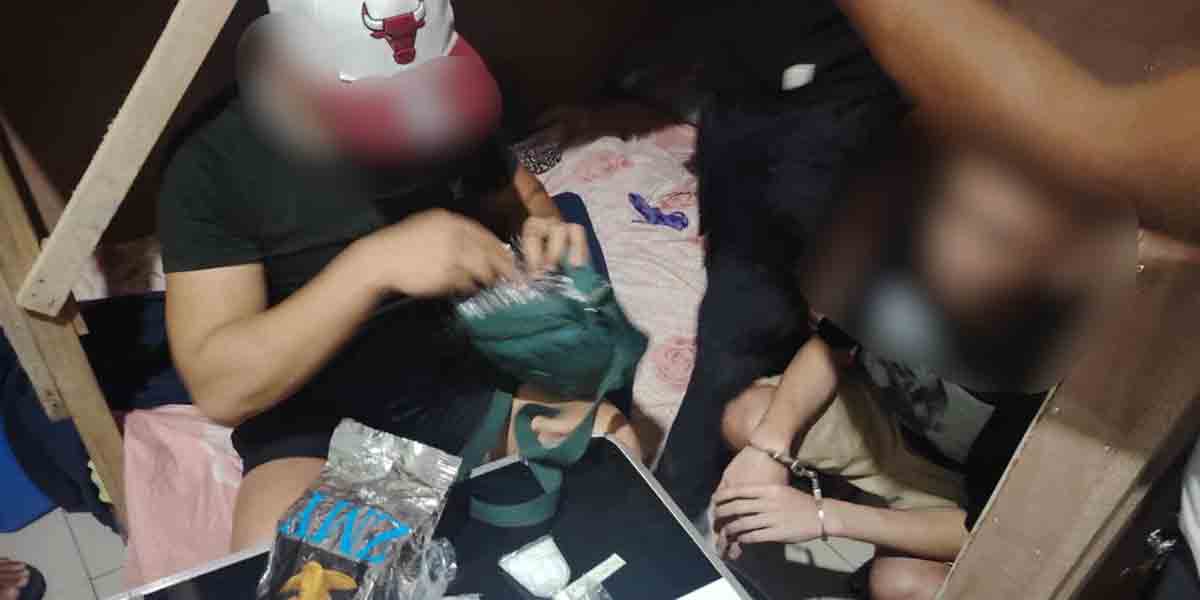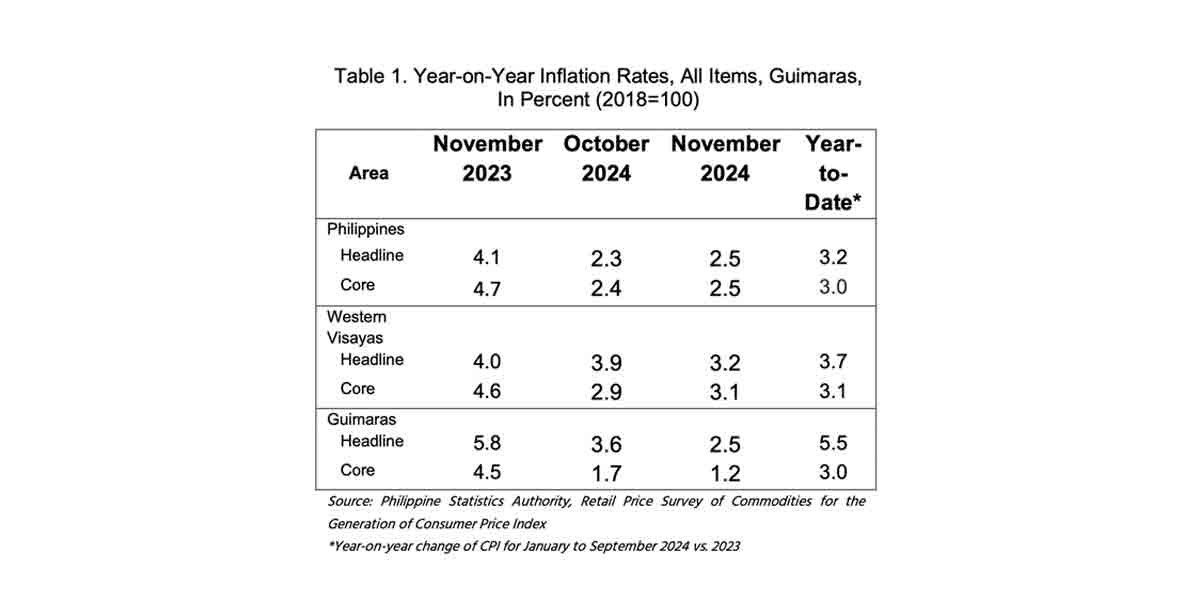By Elizabeth L. Enriquez
Department of Broadcast Communication, University of the Philippines – Diliman
WARNING: PROFANE LANGUAGE
The fabricated sex videos posted online purportedly of Aika Robredo and Tricia Robredo, daughters of Vice President Leni Robredo, are among the recent cases of disinformation circulating in cyberspace that are framed in the vitriol of misogyny. The attack on the young Robredos is obviously an attempt to damage their mother’s bid for the presidency. Many are shocked but not surprised, given the increasingly heated campaign in which the only female candidate is perceived to pose a formidable threat to the nine other presidential aspirants, all male. That the disturbing fakery was not exactly unexpected indicates the alarming yet taken-for-granted consequence of any form of political engagement by women – both in the real world and in virtual space.
This analysis is premised on the observation that misogyny – the intense prejudice against and contempt for women – has become more ferocious in cyberspace in recent years, particularly against those critical of President Rodrigo Duterte, and now during the lead-up to the 2022 elections. This report analyzes a relatively small but significant sample of the appalling number of misogynistic memes, posts, and comments that fan the flame of misogyny, with an equally sickening number of likes and shares from like-minded users, from 2015 to 2020. The following will be discussed as I work through the argument that cybermisogyny violates human rights. It is a disruption of peace, an affront to dignity and equality, and a threat to safety and security. It jeopardizes women’s right to work. As it tends to silence women, cybermisogyny undermines democracy.
DISINFORMATION AS CYBERMISOGYNY
The internet claims credit for democratizing access to information and providing the latitude for free speech. But it has also paralleled and echoed the discords and social maladies in the real world. Discourses of hate and humiliation, often abetted by disinformation, structured against the marginalized in the real world are mirrored online. Discriminated and excluded due to unequal power relations based on class distinctions, race and ethnicity, and culture and religion, of late the most maligned marginalized sectors are the women and the LGBTQ, but especially the women. The viciousness seems to have risen in proportion and in coincidence with the coming to power of the most misogynistic president Filipinos have had the tragic misfortune of suffering in the last six years. And now, with the hotly contested presidential elections at our doorstep, the venom against the female – particularly the high-profile such as female candidates, journalists, activists, and celebrities who boldly express a political opinion – is at its fiercest.
CYBERMISOGYNY AS BACKLASH
Online assaults such as the cases of the Robredo sisters bring into sharp focus an epidemic that began long before the COVID-19 pandemic, now on its third year. The former, a virulent cycle of backlash against women who advance and gain ground in what has been traditionally taken for granted as the masculine territory of public life, appears to be exacerbated by the latter, a global health crisis that has had a profound impact both on public and private lives. As the pandemic has forced everyone to shift work, study, and social connections online, significantly in the Philippines where the longest and most stringent lockdown is just beginning to ease up, it has also provided the platform to reverberate offline misogyny in the virtual world.
Feminist backlash, a concept popularized by Susan Faludi in her 1991 critique Backlash: The Undeclared War Against American Women, shudders in indignation every time women’s rights and social status expand and displace a cog in the machinery of patriarchy. Women’s suffrage, for example, the birth control pill that gave women some measure of power over their bodies, the activist movement against sexual harassment and discrimination, and the enlarging leadership roles of women in politics and economics have all aroused counterattacks from a patriarchal camp that insists that traditional roles of women and men and the unequal power relations that these roles maintain are “natural.”
Faludi writes that this backlash is media driven. The current intensity of cybermisogyny against Leni Robredo, Maria Ressa, Leila de Lima, and Jover Laurio, to name just a few, is part of the present-day backlash against women who have dared to challenge masculine power by encroaching on supposedly masculine terrain. Through contemptible language and lies meant to shame, humiliate, impute immorality (however that is defined), threaten with rape, death, and violence, and bullied with baseless accusations, cybermisogyny attempts to silence women who raise their voices, to put them “back in their place.” The attacks are almost always sexualized, but also common are physical insults, offensive name-calling, and attacks against one’s intelligence, particularly against journalists and politicians. Since 2016 when Duterte became president, the attacks have mostly come from his supporters, real and bots, but even bots are mobilized by real people.
Here’s one example: Veteran broadcast journalist and television news anchor Karen Davila has been portrayed as stupid and incompetent in several posts on her interviews of Duterte allies. The words supalpal and napahiya, roughly translated as “embarrassed” and “humiliated”, diminish her experience and credibility. Note that censures are also posted by women, such as one by Duterte supporter Mocha Uson. This reminds us that the presence of women in positions of power does not guarantee the advancement of gender equality. Inequitable gender relations are first learned in the home and family, where both men and women perpetuate and reinforce traditional gender roles.
Rappler reporter Pia Ranada has also been on the receiving end of similar posts following her reports on extra-judicial killings that Duterte branded as fake news. Duterte described Ranada as having gained weight by writing fake news and banned her from Malacañang. Culturally we presume that gaining weight is unflattering to women; thus, the comment was meant as an insult. A facebook user called Crabbler, obviously meant to parody Rappler, reacted with malice to Ranada taking exception to a violent threat from DWIZ radio host RJ Nieto asking presidential spokesperson Harry Roque to throw a hollow block at her. With an expletive, Crabbler called Ranada “a stupid woman.”
Female-led and with more women than men in its team, the online news website Rappler, the first of its kind in the country, has been the object of persecution by the Duterte government mainly due to its coverage of the drug war. Apart from the numerous court cases it has been contending with, Rappler’s journalists have also been derogatorily dubbed as “college sorority bloggers” and as Rapplerettes, in effect infantilizing them by using terms that demean their maturity and experience. As we know, infantilization of women is a common means to treat women as immature, thereby diminishing them.
The portmanteau terms whorenalism and whorenalist have been used to describe Rappler as well as journalists critical of Duterte like award-winning freelance journalist Raissa Robles. When the prominent Christiane Amanpour of CNN commented on Maria Ressa’s arrest for alleged libel, saying that, “You know a government is desperate when they arrest a journalist,” she, too, was labelled a whorenalist along with Ressa.
The physical insults hurled against blogger Jover Laurio are brutal. Blogging under the handle PinoyAkoBlog, she is critical of Duterte and his allies. Formerly anonymous, Laurio has filed a court case against two pro-Duterte bloggers, RJ Nieto and Sass Sasot, whom she accused of violation of the Anti-Privacy Law, by doxing her, or collecting and publishing personal information about her, including her photographs, without her authority. The harassment online that followed focused on her physical appearance, calling her Fiona Pig, in reference to the ogre princess in the animated film Shrek, and bakulaw (beast).
Physical insults have also been thrown at sisters Senator Nancy Binay and Makati Mayor Abby Binay, both well-known politicians and daughters of former vice president Jejomar Binay. Called pangit (ugly) and negra (dark) like their father, a post reported that the mayor was mistaken for a yaya (nanny) of the daughter of popular celebrity dermatologists Vicki Belo and Hayden Kho while the senator was told to scrub (maghilod) to remove the thick dirt from her skin. Along with some of the posts, the Binay family was accused of corruption.
While Laurio and others are insulted for being overweight, Senator Risa Hontiveros is slurred for her slight build. Her criticism of Duterte provoked several facebook users to rant at her “fake beauty” and accuse her of having had cosmetic surgery by using the word retokado and charging the expenses to Philhealth. She was called an “idiot bitch”, a user, defender of criminals, drug addicts, and terrorists; a thief, and disrespectful of the government and the law.
More spiteful perhaps than the attacks against Senator Hontiveros are those against Vice President Leni Robredo. Her performance has been maligned online long before she declared that she was running for president. She has been disparagingly branded as lugaw (literally porridge but used as a local jargon for “lightweight”), lutang (literally floating but connotes slow-wittedness), and madumb (a play on Madam and dumb). The brand lugaw was occasioned by her providing porridge to frontliners in the early part of the pandemic as she worked with a limited budget, while lutang and madumb emerged from edited interviews that made her look lacking in intelligence. Despite her office earning the highest rating for three straight years from the Commission on Audit, which indicates her office’s proper use of public funds, Duterte supporters Lorraine Badoy and Sass Sasot posted long tirades against her and called her inept and incompetent.
Unable to sniff a whiff of corruption in her performance as vice president, bashers posted the most venomous disinformation about her, alleging that she had an extra-marital affair while her husband was still alive, was pregnant by a married congressman, and then aborted his child. Until today posts emerge online claiming that she is carrying on an affair with a married man, dubbed her boylet (local slang for casual fling), to whom she goes home every night, calling her a kabit (local slang for mistress). As mentioned above, her daughters have also become the victims of fabricated sex videos that impugn their reputation.
I find even more savage the attacks on Senator Leila de Lima, former Chair of the Commission on Human Rights and Justice Secretary during the term of the late President Noynoy Aquino. A fierce vocal critic of Duterte, de Lima was arrested and has been in jail since 2017 on what are widely believed to be trumped-up charges of drug trafficking. To disgrace her, her private life was dug up at a Senate hearing, covered live on television, where her male colleagues questioned her and alleged drug lords who testified against her. (Of course, we now know that they are recanting their testimonies one by one, yet de Lima remains in jail.) The Senate hearing quickly deteriorated into irrelevant inquiry into her romantic relationship with her former security aide Ronnie Dayan, allegedly her bagman. The slanderous rhetoric was immediately echoed and exaggerated on social media. Dehumanizing deep fakes of her face in compromising photos and videos were posted online. Indelicate allusions to the male member by using the saba banana became part of the references to de Lima. When she admitted her relationship with Dayan and attributed it to “the frailties of a woman”, a facebook user coined the pejorative “frailties of the pekpek (female organ)” to refer to her. Other slurs thrown at her include the words with denigrating connotations such as malandi and the variations malantod and maharot (slut), tigulang igat (matandang malandi or old slut), halimaw (monster), and salot (plague). Some facebook users castigated her while one advised her to hang herself.
ONLINE RAPE IN A REAL WAR AND THE MANOSPHERE
Two premises are proposed here: First, that online rape threats, and by extension death threats and other threats of violence, may be considered a form of attempted rape and attempted murder or assault, respectively. In the United States, the National Crime Victimization Survey includes threats of rape, including those made online, as a form of attempted rape, and thus taken seriously. The second premise is that the backlash against women is a real war waged in cyberspace. Social media, in particular, is weaponized against those who resist the traditional patriarchal order. While we may grant that the internet has opened up spaces for women and the LGBTQ who advocate gender equality, the manosphere is also online, instigating sexual harassment, spewing misogynistic fury, and normalizing violence against women. The manosphere, often associated with extreme rightist groups, is a compendium of online sites and forums promoting traditional masculinity and misogyny.
Perhaps the social media users in our sample may not necessarily be card-bearing members of the manosphere, but their online behavior of policing women and women’s sexuality online and consistent sexualization and dehumanization of women reflects the philosophy of the manosphere. Women who appear to challenge the patriarchal tenet that men, with their sexual prowess, are “naturally” hardwired to be the leaders in society while women should submit to them, are on the receiving end of online wrath and insults. The power gap justifies the double standard that dismisses as normal and not-to-be-questioned the infidelities of a president who keeps at least one mistress by his own account, while vilifying a female senator in a romantic relationship with a man not her husband.
This study’s sample shows that women journalists, female politicians, and other women in positions of power are targeted online because they appear to disrupt the patriarchal order, inciting the backlash that today is waged largely in cyberspace. A most disconcerting case is of Rappler’s CEO Maria Ressa. Rappler has been relentless in covering Duterte’s drug war and the extrajudicial killings that have been its costly price. Consequently, attacks against Ressa, who last year became the first Filipino Nobel Laureate, have been sustained throughout Duterte’s term.
The death and rape threats poured in unbelievable numbers. But also horrifying was the sarcasm and spite issued by several social media users. Following the publication in late 2016 of the Rappler series titled “Propaganda War: Weaponizing the Internet”, the threats escalated. She received an average of 90 hate messages an hour. When she was misquoted as saying she received 90 rape threats per minute, a spate of meanness surged in. The hate messages were directed at her looks. The general theme was that she was not good-looking enough to be desired, that she was old, and had delusions of being a sex object. Her skin was a common object of ridicule, mocked as galis or galis-aso (dog mange), kaliskis (scales), and balat-ahas (snakeskin).
This shows how deeply misunderstood is the crime of rape, that it is not about sexual desire but a violent assertion of power. Studies indicate that rapists are angry at women and will drive to dominate and control them. And since we are on the subject of war, here is an ugly but sobering truth about rape and war: Rape, enforced prostitution, and intentional impregnation have been a weapon and strategy of war throughout history. Women’s bodies have been used to humiliate the enemy, to avenge a defeat in battle, and for ethnic cleansing. In this online war against women, rape is invoked for the same reason – to humiliate and retaliate against women who dare speak up.
In some posts, rape by a discredited group is wished upon the object of cybermisogyny, such as a facebook user’s curse that veteran journalist Raissa Robles be raped by the Islamist group Maute before they behead her. Similar posts rained on Kabataan Partylist representative Sarah Elago as she was red-tagged or labelled as communist. In one post, a facebook user said that she should be “gangbanged” by drug addicts. Several others piped in to say that this is what the New People’s Army would do to her.
Analogous to rape threats online are posts that troll critics with crass, hyper-sexualized and inflammatory comments, such as those trained at a young female anti-Marcos activist who protested the burial of the late dictator Ferdinand Marcos in the Libingan ng mga Bayani (national heroes’ cemetery), a controversial decision made by Duterte. The woman was called “a future porn star” and maganda pero booba (pretty but dumb). One post suggested a “gangbang” while she is muzzled and tied down, while another invited her to give him a “blowjob” for which she would be paid handsomely.
Here are other atrociously insensitive comments: Reacting to a Rappler story about an OFW in the United Arab Emirates who, in self-defense, killed her employer who brutally beat her up and tried to rape her at knifepoint, a facebook user commented that she should have just allowed and enjoyed the rape. A meme illustrates a threat of violent rape by sodomy against Ranada. In a news story filed online, Davao vice mayor Paolo Duterte dares Davila to join him alone in a hotel room so he could show her his tattoo. The harassment followed a question by the broadcast journalist regarding then Senator Antonio Trillanes’s allegation that Duterte had a tattoo on his back that proved he was part of a Chinese drug syndicate.
The persistent sexualization of women, which reduces their worth to their sexual appearance and behavior while ignoring their other qualities, has not spared Duterte allies such as Mocha Uson, though opposition politicians and critics remain to be on the receiving end of the most vicious attacks. The posts in the sample for this study show that there are Duterte detractors who are not beneath using coarse language to malign their targets. In these posts she is called whore, prostitute, puta (local vulgar term for prostitute), pambansang pokpok (national whore) and hubadera (crude term for stripper).
That Uson is frequently reproached for her perceived promiscuity is a way to police women’s sexuality. Another is the sneer at Ressa’s sexual orientation, a departure from socially enforced gender relations, as if this has any relevance to one’s work or value. Called tomboy (local slang for lesbian, usually derogatory), Mariang may lawit, which translates as Mariang with something dangling, implying that she has a penis, the rebuke at times invokes another irrelevant charge, that Maria is not Filipino or is a dual citizen, as if dual citizenship reduces her Filipinoness.
HOW CYBERMISOGYNY VIOLATES HUMAN RIGHTS
Cybermisogyny cannot be defended as free speech. The harm it causes is real and is a violation of human rights – women’s human rights. Freedom of speech is not absolute, and it can be circumscribed if it produces injury. The oft-cited argument is that misogyny in virtual space undermines democracy. That this type of online abuse tends to have a chilling effect on women’s freedom to engage in public discourses in the digital sphere is correct.
But the damage is not only to the polity or the public sphere. The cost is greater when we examine the closer and more personal detriment to women who are the subject of misogynistic attacks online. Almost everyone including women, especially women in politics and media, must today maintain a strong virtual presence to do their jobs. However, they now also endure a threat to their right to work, and to just and favorable conditions at work. This recalls the banning of Ranada from entering Malacañang when her reports displeased its occupant. A post by Thinking Pinoy mocked her by suggesting alternative means of livelihood, such as fish, fruit, and street food vendor, manicurist, masseuse, or jeepney barker, which had the side effect of insulting the women who perform all kinds of honest work regardless of imagined social stature. The starker reality is that gendered attacks online deny women a safe space on the digital sphere, affecting their right to work, which is a right that no one can be deprived of.
Everyone has a right to be treated equally and with dignity regardless of race, color, sex, language, religion, political or other opinion, national or social origin, property, birth or other status, as guaranteed by the Universal Declaration of Human Rights. Cybermisogyny is undoubtedly an affront to rights to safety and security, especially considering the traumatic psychological and emotional impact on women subjected to sexualized and violent attacks. Published online for everyone to see, a woman’s victimization is magnified, particularly when third parties form a cybermob, which can, for many women, translate into a real fear that threats of rape and violence online can actually happen offline.
Are women pushing back? Yes, to some extent. Some take on the trolls by posting their disgusted replies. Reacting to the facebook post suggesting that an OFW should just have accepted and enjoyed being raped by her employer, a user asked how the author of the post would feel if the OFW was his daughter, while another exclaimed that the suggestion was criminal. A similar pushback was posted to react to the comments on the woman who joined a rally protesting Marcos’s burial at the Libingan ng mga Bayani. On Davila, Media Newser Philippines called Duterte’s comment sexist, so the post itself was not an attack on Davila but a criticism of Duterte.
A CALL TO ACTION
In a recent interview by Ressa, Vice President Leni Robredo admitted she was wrong to have ignored the disinformation about her online in the beginning of her term as Vice President, and that she should have responded to dispel the lies and what she called “muck”. Her daughters must have learned the lesson as they quickly sought the assistance of the National Bureau of Investigation to look into the fake sex videos. However, the pushback continues to be overwhelmed by the armies of trolls. Both Robredo and Ressa observed that social media platforms have refused self-regulation as they make so much money, to quote Ressa. Robredo sees the solution in legislation that will make social media serving platforms accountable.
As Robredo said, it is about time. This will expectedly be a controversial piece of legislation as critics will sound the alarm against a threat to freedom of speech. Admittedly, a balancing act is required here, but that cannot be used as an excuse to delay action as so much is at stake here.
Apart from local legislation, a new digital social contract is in order, through binding international covenants among nations, to stop the amplification of cybermisogyny and all forms of disinformation and incivility online. Among the standards the designers of the algorithms must take into account are the very real harms that women contend with online, instead of, as US Congresswoman Jackie Speier wrote to facebook on behalf of 100 women legislators from 30 countries, “algorithms that reward extreme and dangerous views with
greater reach and visibility creating a fertile breeding ground for bias to grow.”
Writers Lucina de Meco and Alcy MacKay quote the United Nations Human Rights Council, which states that “the corrosion of women’s human rights is a litmus test for the human rights standards of the whole of society”. And, De Meco and MacKay write, when these standards falter, “so do many of the common beliefs, values and social norms that we take for granted, including freedom of expression for everyone – not only the powerful and the bullies….
Non-action is not an option.”
With reports from Gemma B. Mendoza, Rappler
Works cited:
@jnery_newsstand. Twitter, April 30, 2022.
Concepcion, Pocholo. “Pinoy Ako blogger Jover Laurio sues Nieto, Sasot”, in Inquirer.Net, May 3, 2022.
De Meco and Alcy MacKay. “Social media, violence and gender norms: The need for a new digital social contract”, in ALIGN, January 19, 2022.
Dhrodia, Azmina. “Social media and the silencing effect: why misogyny online is a human rights issue: A survey of women in eight countries shows a clear trend”, in The New
Statesman UK Edition, accessed April 13, 2022.
Fact Check Philippines. “Leni Robredo, may ibang inuuwian tuwing gabi?” in Tsek.ph, April 21, 2022.
Faludi, Susan (1991). Backlash: The Undeclared War Against American Women. New York: Crown.
Rape threat. Wikipedia, accessed April 30, 2022.
Warjri, Laetitia Bruce. “Toxic trolls: How can we protect women on social media?” in Digital Frontiers, March 13, 2021.
Daily Guardian is part of #FactsFirstPH, which brings together various sectors that are committed to promoting truth in the public space, and exacting accountability on those who harm it with lies. For those interested to join the initiative, email editorial@dailyguardian.com.ph and info@factsfirst.ph, or send a message to facebook.com/DailyGuardianPH.






















